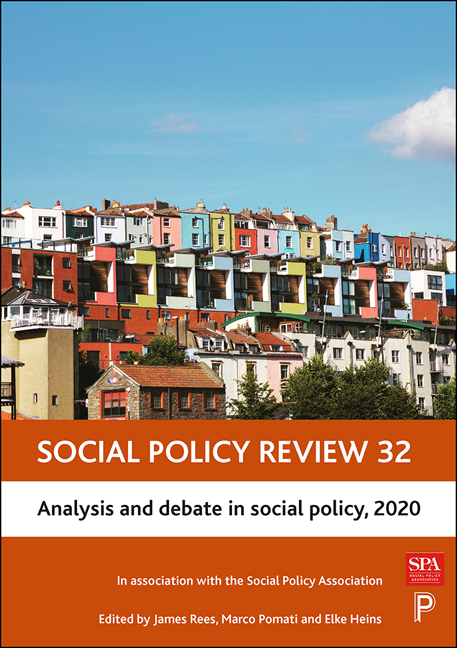12 - ‘Everywhere and Nowhere’: Interventions and Services Under Austerity
Published online by Cambridge University Press: 18 March 2021
Summary
Introduction
In order to truly understand the power of the state in its full specificity, i.e., the particular symbolic efficacy it wields, one must … integrate into one and the same explanatory model intellectual traditions customarily perceived as incompatible. It is necessary, first, to overcome the opposition between a physicalist vision of the social world that conceives of social relations as relations of physical force and a ‘cybernetic’ or semiological vision which portrays them as relations of symbolic force, as relations of meaning or relations of communication. The most brutal relations of force are always simultaneously symbolic relations. (Bourdieu et al, 1994: 12)
In the lead-up to the 2010 general election, various aspects and activities of the welfare state were used to justify the need for a period of austerity and some belt tightening by the government. A picture was painted of an expensive and overly bureaucratic central government, with too many middle-managers making decisions about communities that they were too removed from. It was accused of providing services to those who did not really need them or, conversely, were becoming too dependent on them. The political arguments for austerity thus ‘moved uncomfortably between the “economic necessity” claim and a more moral and social vocabulary of responsibility and interdependence’ (Clarke and Newman, 2012: 303).
The programme of austerity was also largely justified because of the alleged unsustainable cost of ‘handouts’ to groups such as ‘shirkers’, ‘troubled families’ and ‘benefits cheats’. These groups were then set against more honourable and deserving groups like ‘hardworking families’ and ‘taxpayers’. It is therefore unsurprising that different research studies have exposed the deleterious effects on some of the most disadvantaged groups in society (Beatty and Fothergill, 2016). One investigation into the use of benefit sanctions in the UK highlighted that they are inefficient, cause great suffering and are unjust, and also noted ‘the persistent, insensitive, uncaring and relentless harassment by the DWP [Department for Work and Pensions] of those who fail to meet the requirements of conditionality in social security’ (Adler, 2018: 150). In his statement about the poverty and hardship that he witnessed on his visit to the UK, the UN Special Rapporteur on Extreme Poverty and Human Rights, Philip Alston (2018: 18), remarked that ‘The costs of austerity have fallen disproportionately upon the poor, women, racial and ethnic minorities, children, single parents, and people with disabilities.
- Type
- Chapter
- Information
- Social Policy Review 32Analysis and Debate in Social Policy, 2020, pp. 271 - 290Publisher: Bristol University PressPrint publication year: 2020



